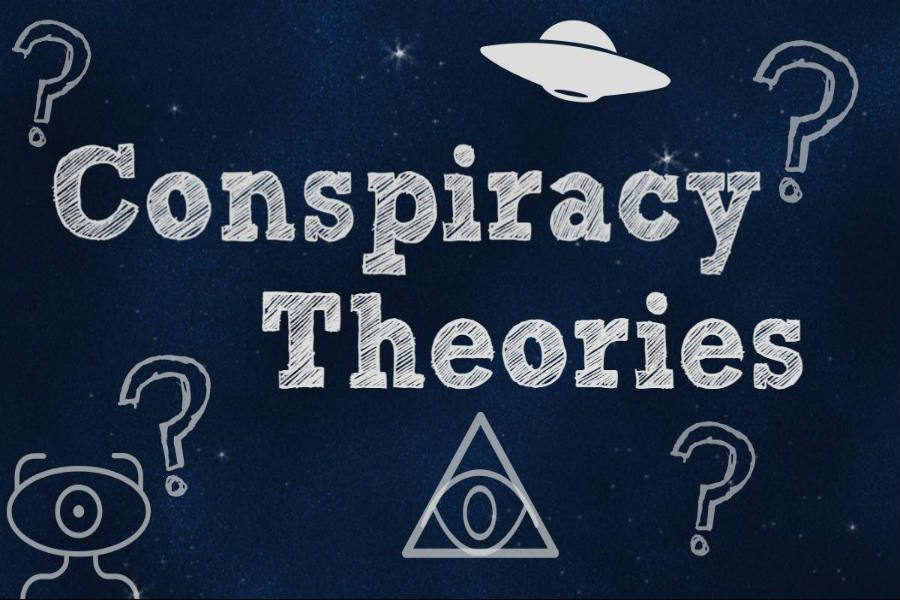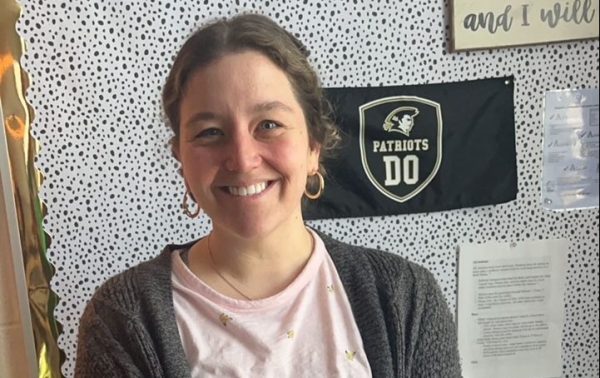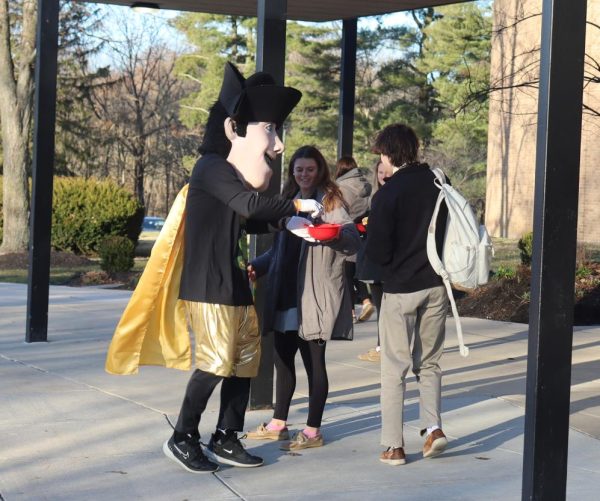Conspiracy theorists open their minds to unconventional ideas
In the In-Focus section, The Patriot takes a closer look at topics that affect the school community. The articles investigate issues by conducting in-depth interviews, extending research outside JC, and exploring multiple angles of a story.
Conspiracy theories offer an alternative explanation for something that has happened in the past. While several people debate whether these theories are true, no one will ever be certain.
Paying sharp attention during a history class on World War II, senior Laura Miller hones in on something her teacher said, something she disagrees with. That can’t be true, she thinks, because “Hitler didn’t die in the bunker.” Curious, she begins to think about what she believes actually happened.
The year was 1945. After taking control of Berlin, the Soviets quickly located Adolf Hitler’s underground bunker. However, they could not find conclusive evidence that he died: no body, no signs of struggle, nothing. To avoid the embarrassment of losing Hitler, the Soviets covered their tracks by claiming that the recently-buried ashes found above the bunker actually belonged to Hitler and his wife, Eva Braun.
Though this version of history is not taught in schools, it has spread among conspiracy enthusiasts, like Miller, who believe that Hitler faked his own death in 1945. “There’s a lot of evidence supporting this theory, and it seems more plausible than not,” Miller said. “Hitler was a pretty narcissistic guy and really wanted the world his way. I doubt he would go down without a plan.”
Miller’s belief in the Hitler conspiracy has stemmed largely from her recent interest in the History Channel’s documentary called “Hunting Hitler.” According to this theory, Hitler secretly relocated to a bunker in Argentina after faking his own death back in Berlin. “All of the things they have found have pointed directly to the fact that he got away and went to Argentina and wanted to start a Fourth Reich,” Miller said.
Fellow senior Caleb Olsen, on the other hand, believes that most conspiracy theories are “outlandish and absurd” and that the most intriguing thing about them is “the stupidity behind them all.”
For him, belief in conspiracy theories can be attributed to ignorance rather than progressive or creative thinking. “A lot of people believe in conspiracy theories because they have a lack of education about a topic,” Olsen said.
Hitler was a pretty narcissistic guy and really wanted the world his way. I doubt he would go down without a plan. — Senior Laura Miller
Science teacher Anthony Davidson agrees with Olsen. “People like to believe conspiracy theories because they are flashy, interesting, and present alternate views for things that are hard to explain otherwise,” Davidson said.
He attributes the belief of conspiracy theorists to “confirmation bias.” In other words, he believes that people are looking for an explanation that agrees with their preconceived notions. They can then be easily persuaded when a theory, even one that logic and science does not support, presents itself.
Junior Erin Disney, for example, believes in the Mandela Effect because it offers an explanation for confusing or conflicting information. The Mandela Effect occurs when a significant number of people remember an event or fact that is contrary to what actually happened. Disney is particularly interested in the theory that Curious George has or used to have a tail, when, in fact, this version of the famous children’s book character never existed.
“Sometimes we think we see things when we really don’t. Our mind seems to make up things that aren’t there,” Disney said. When Disney recently learned about the Mandela Effect, she accepted it as a way to account for this discrepancy between memory and reality.
Even for nonbelievers, conspiracy theories can provide an alluring distraction. “I like to watch ‘Ancient Aliens’ on the History Channel. They bring up the interesting questions, but then they go too far with the answers,” Davidson said.
Despite their divisive believability, various groups of people talk about conspiracy theories. Sophomore Maureen Healy, for example, typically hears about conspiracies when she is practicing for equestrian or searching online. “I ride a lot at farms, so I hear a lot of people talking about [conspiracy theories], or I’ll see something on the Internet, like Buzzfeed,” she said.
Disney, on the other hand, often hears about conspiracies while she is in school. “I think my friends talk about conspiracies a lot, and in class, I’ll hear people talk about the Mandela Effect sometimes,” she said.
Though conspiracy theories are viewed from many different perspectives and can even gain widespread support, by nature they remain just theories. While they can be used as a source of entertainment, “Conspiracy theories can also be used to explain things I don’t understand,” Disney said.
Paige Alban and Ianna Pirozzi are In-Focus Editors for The Patriot and jcpatriot.com.





